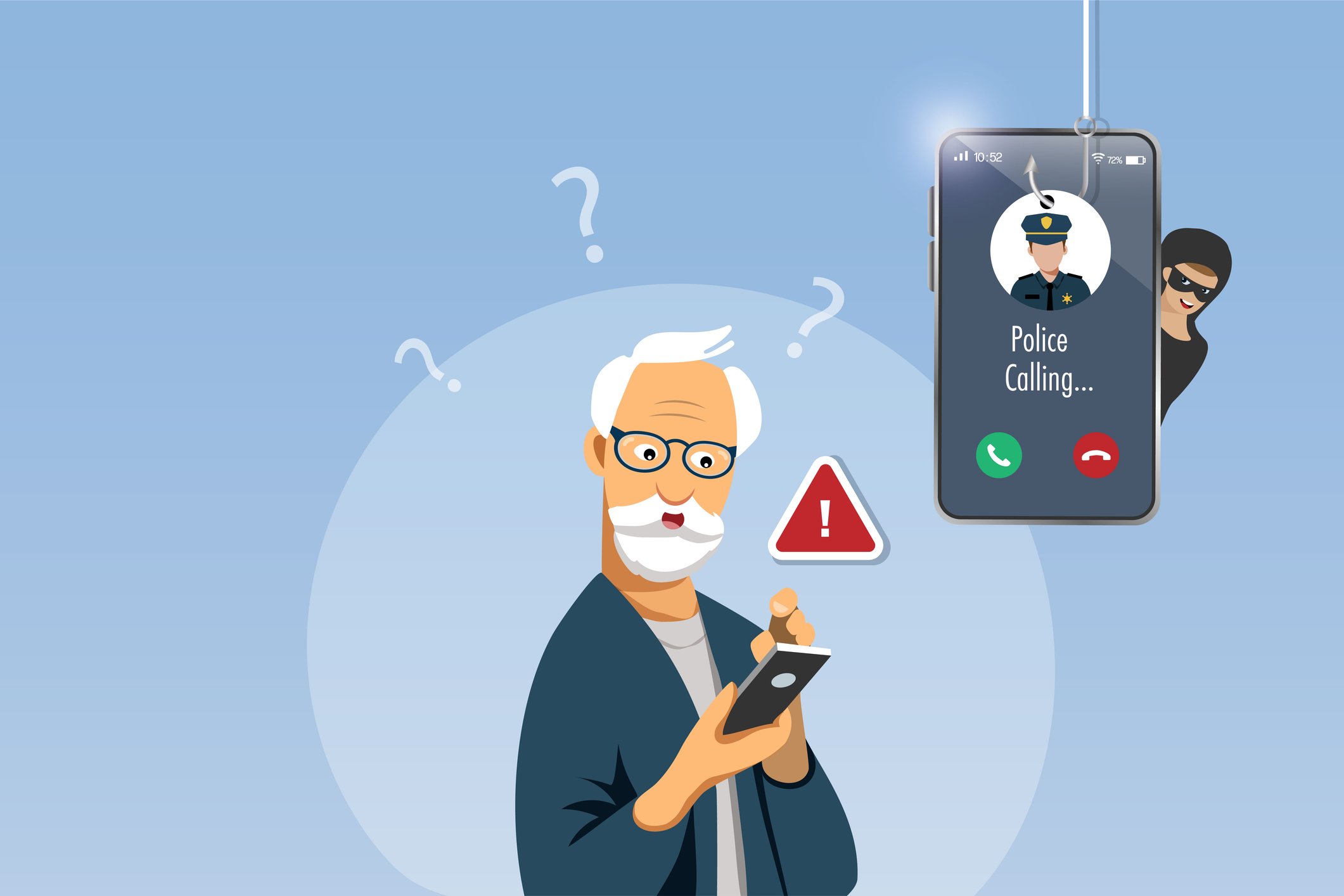
Have you received a phone call that looked like it came from your local police department? The caller ID might display the real number of the sheriff’s office, and the person on the line may even use the name of an actual officer. This is called spoofing — when scammers use fake caller ID information to make the call appear legitimate. Although it sounds official, it’s often a scam. Learn how to protect yourself.
How the Scam Works
A scammer calls, claiming to be a sheriff or deputy from your local law enforcement agency. They may say:
- A suspicious package in your name has been intercepted — possibly containing cash or prohibited items.
- You failed to appear for federal jury duty after signing a subpoena.
- There’s a warrant out for your arrest.
The caller insists that to avoid being taken into custody, you must pay a “fine” immediately. They may direct you to:
- Withdraw cash and deposit it into a specific kiosk.
- Send cryptocurrency.
- Buy gift cards and share the numbers.
- Transfer money through payment apps like Zelle, Venmo, or Cash App.
As the conversation progresses, they may introduce new threats. For example:
- Not to go to the police station before paying — claiming it's an “admission of guilt.”
- That you’ll be arrested on sight if you show up without proof of payment.
It’s all designed to scare you into acting fast and handing over money before you have time to think or verify the facts.
What Law Enforcement Will Never Do
- Call to threaten you with arrest.
- Demand fines through gift cards, cryptocurrency, or payment apps.
- Instruct you to keep the call secret or isolate you from others.
What You Should Do
- Hang up immediately.
- Don’t call the number back, even if it looks legitimate.
- Contact your local law enforcement using a number from their official website.
- Report the scam at ftc.gov.